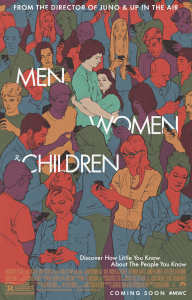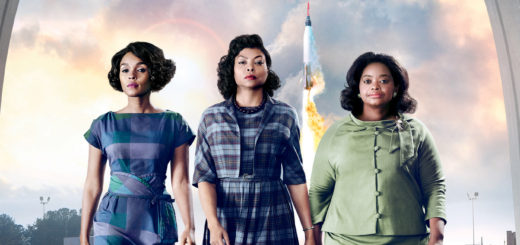Men, Women & Children – Movie Review
 Men, Women & Children – R
Men, Women & Children – R
Release Date: Fri 17 Oct 2014
I’ve been looking forward to Men, Women & Children for a while as a fan of director Jason Reitman’s previous films. This film deals with the uncomfortable territory of double standards and secrets in how modern society deals with intimacy, loneliness and safety. There’s no right or wrong character here, all are presented to show different perspectives and permutations of how different people deal with similar struggles.
The movie establishes and manages to maintain a tone of non-judgmental statement of facts told to us by the omniscient narrator (Emma Thompson.) Carl Sagan’s Pale Blue Dot is used as a framing device that simultaneously mirrors how alone we are on a cosmic scale. As Tim (Ansel Elgort) tells his counselor in the film, the universe probably wouldn’t notice if he were gone tomorrow. Just as this starts to sound nihilistic, he elaborates: “That comforts me.”
Jennifer Garner plays a hyper-vigilant parent, reading every online interaction and text message sent by her daughter and tracking her movements via the GPS on her phone. Adam Sandler and Rosemarie DeWitt play a couple who have lost passion in their lives and both start to look outside their marriage for fulfillment.
Dean Norris plays Tim’s father, who is having a hard time connecting with his son after his wife and Tim’s mom abandoned them for California and a new man. Judy Greer plays a mother who is trying to bring her daughter reality-TV fame in a somewhat vicarious second chance at a life that she originally wanted for herself.
It’s tempting to pick apart Men, Women & Children for being forthright in its subject matter while not always feeling like the situations make sense. As an example, Sandler and DeWitt seem to want the same things from each other yet they seek it outside the marriage. This includes a scene that intercuts Sandler asking a woman to lay her head on his chest while DeWitt is doing just that – in another place with another man.
Yet the logic of the story is less important than perspective. We have all of the characters here to give us different ways of dealing with similar situations. There’s the different shades of teenage girl characters with varying degrees of confidence, experience and naivete. The parents and the children are meant to show us how people can make mistakes even with the best intentions.
It’s a great conversation piece and also something of a time capsule of 2014 in terms of its statements about technology. With its unflinching approach to subjects like pornography and sexting, it’s probably a little too uncomfortable for parents to watch with their teenage children, but both would probably get something out of it nonetheless if watched separately.
Hannah and I saw it in the theater and had a discussion afterward in the car:


